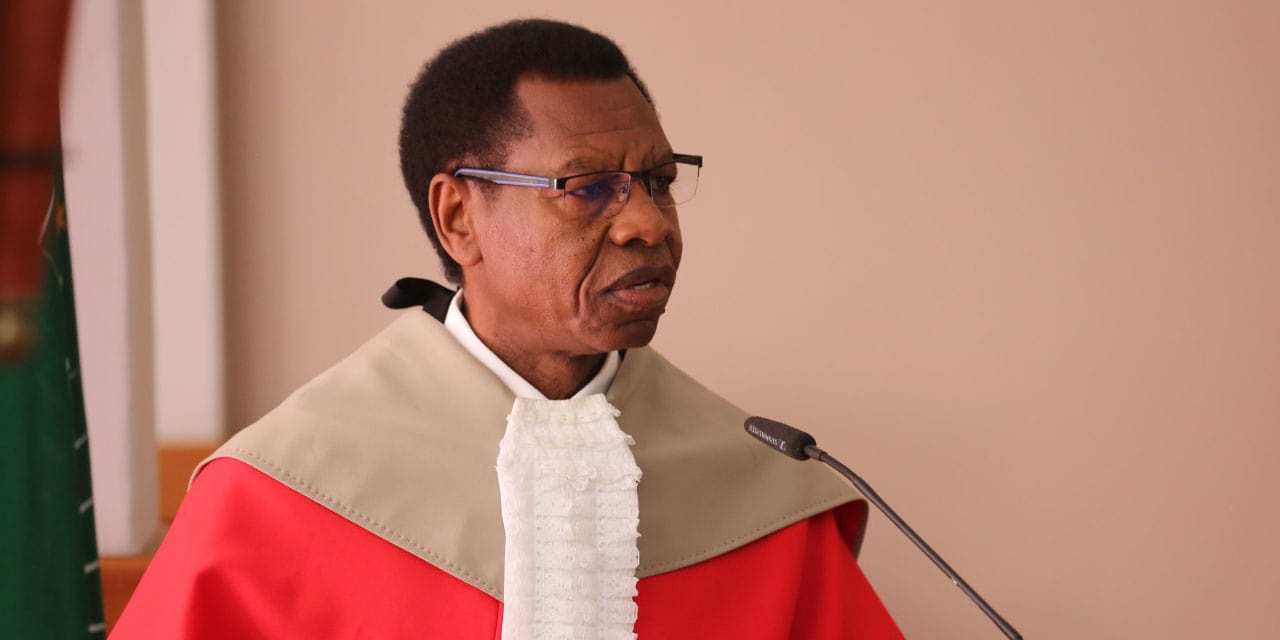Martin Endjala
Chief Justice Peter Shivute says the low performance of lower courts in the country last year was because of a lack of economic resources, adding that in order to see more magistrates, more courtrooms and more support staff, sufficient funds are needed to run periodical courts and to pay witness fees in order to reduce backlog of cases on the court rolls.
“We have, however, not given up. We cannot give up. We shall strive hard to bring about a discernible improvement in the operations of the Lower Courts,” Shivute said during his address at the opening of the 2023 legal year today in the capital.
Lower Courts consist of nine Regional Courts, 37 District Courts and 35 periodical courts across Namibia. The courts deal with a wide range of criminal, civil, maintenance and domestic violence cases as well as low-level traffic offences.
The Magistracy is however also responsible for a multitude of agency services on behalf of other Ministries, such as attending to the solemnization of marriages under the Marriage Act and the granting of temporary and permanent liquor licenses.
“There is an enormous desire among all members of the Judiciary and the support staff to do better to serve our people, if only we could have sufficient resources to fulfil our constitutional mandate. However, be that as it may, I am pleased to see that overall, the Judiciary remains unquestionably sound, healthy and ever-ready to serve the people well. Therefore, my call to all members of the Judiciary and the support staff in this 2023 Legal Year is that we must rededicate ourselves to the noble cause of serving our people with renewed diligence and dedication, not forgetting honesty and integrity. The country expects nothing less”, Shivute noted.
In response, President Hage Geingob noted that he is aware of the ongoing budget cuts which curtail the Judiciary’s ability to fill critical vacancies, promote staff development and capacity building, and improve the courts’ infrastructure.
Geingob called on the Judiciary and the Ministry of Justice to deliberate on alternative funding solutions and improved coordination between the Ministry of Justice and NGOs/CSOs towards the provision of legal services and or representation for the indigent, adding that these approaches could provide stability during these times of difficult economic circumstances.
Meanwhile, Shivute revealed that last year, a total 114 appeals were registered with the Supreme Court. Of this number, 105 are civil appeals and nine are criminal appeals. During the year under review, 51 matters were enrolled between March and November.
Out of the 51 matters enrolled, two were postponed and 49 were heard by the Court. Of the 49 matters heard, 47 judgments were delivered representing a 96 percent clearance rate and the remaining two are receiving attention.
In 2022 the general output of the court which is divided into two divisions, Windhoek and Norther court remains satisfactory, he said. The civil stream judges in both Divisions attended 10 014 civil actions. Of this total, 6 465 matters were finalised in both Divisions, representing a 65 percent clearance rate.
The civil stream judges delivered 522 judgments during the period under review, 69 percent of them in the main division within the approved guidelines for the disposal of civil cases, and 62 percent in the Northern Local Division. A total of 1012 civil cases were referred to court-connected mediation in both divisions, resulting in 332 out-of-court settlements representing a success rate of 47.8 percent for the Main Division, and 58 percent for the Northern Local Division.




